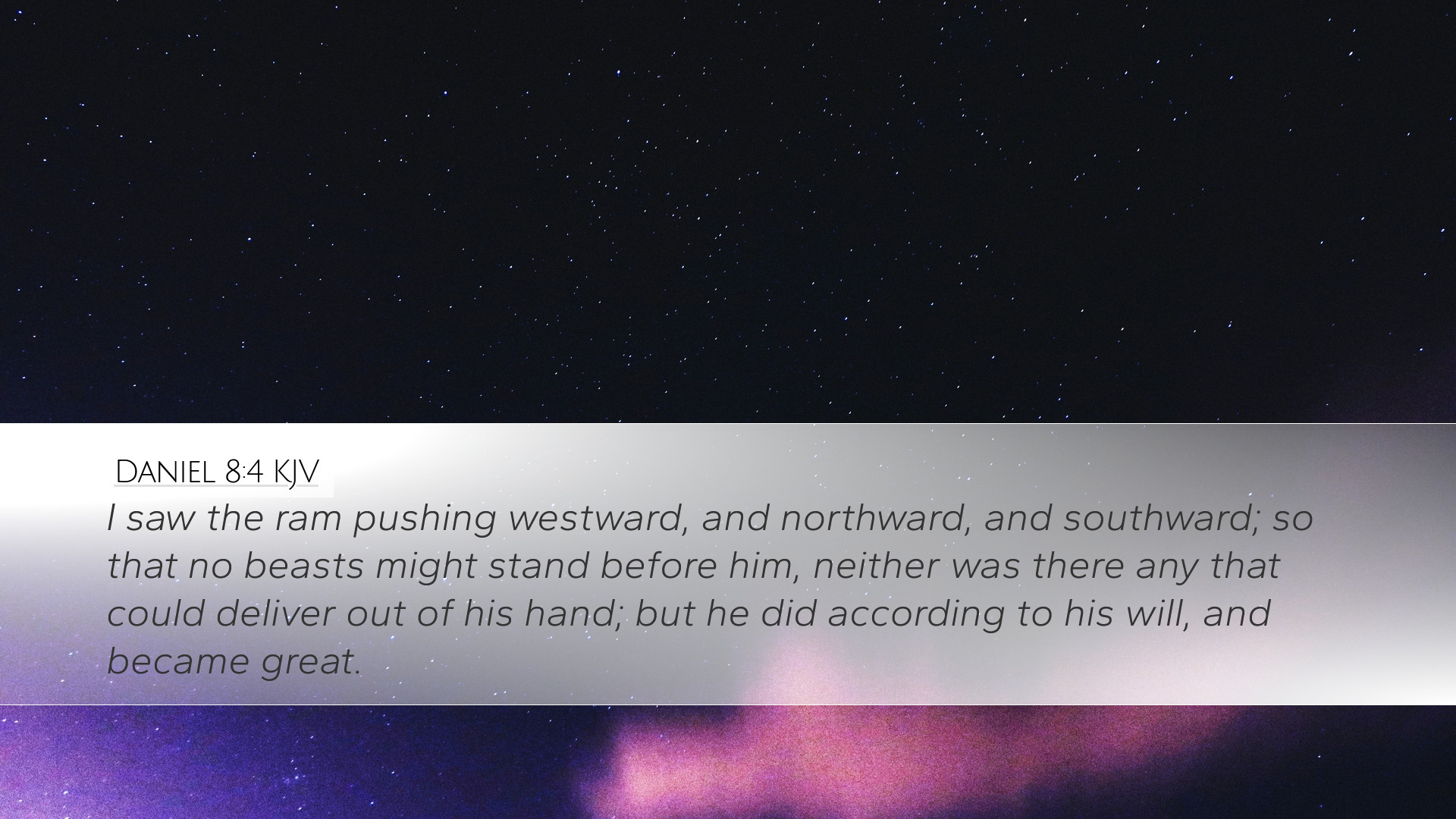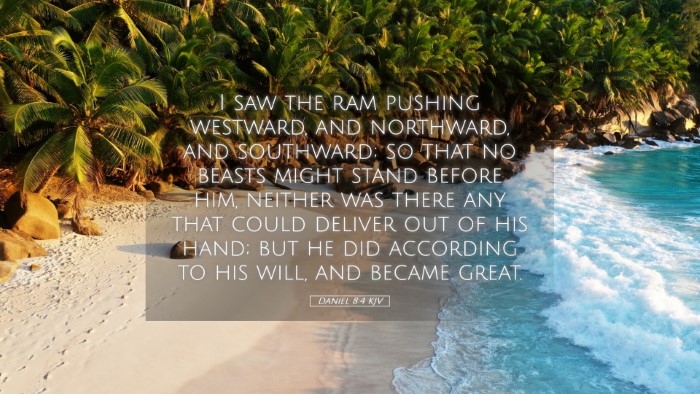Commentary on Daniel 8:4
Daniel 8:4 states: "I saw the ram pushing westward, and northward, and southward; so that no beast might stand before him, neither was there any that could deliver out of his hand: but he did according to his will, and became great."
Historical Context
In this chapter, Daniel receives a vision that stands among the most profound prophetic insights in Scripture. The vision occurs during the reign of Belshazzar and presents future events that will shape the geopolitical landscape of the region. The ram represents the Medo-Persian empire, which expanded its dominance through conquest.
Exegesis of the Text
According to Matthew Henry, the description of the ram “pushing westward, and northward, and southward” illustrates the aggressive expansion of the empire. Each directional push symbolizes the conquests that the Medo-Persian empire undertook to consolidate power. The historical accuracy of this prophecy is affirmed by the actual historical records which show the empire expanding in these precise directions.
Albert Barnes elucidates that the phrase “no beast might stand before him” indicates the invincibility and superiority of the Medo-Persian empire during its zenith. This enforces the idea of divine ordination of the events that unfold within the province of human governance, underscoring God’s sovereignty over nations and rulers.
Theological Implications
Adam Clarke points out that the ram's uncontested dominance serves as a reminder of the transient nature of earthly power. The expression “he did according to his will, and became great” conveys the inevitable ambition and hunger for power that characteristic kingdoms demonstrate. This raises theological reflections on pride, ambition, and the limits of human achievement in contrast to divine purpose.
Divine Sovereignty
The authority exercised by the ram symbolizes the overarching sovereignty of God throughout human history. According to Barnes, this emphasizes a critical theological premise: God is always at work behind the scenes, guiding and directing the events of nations for His intended purposes. Understanding this helps pastors, theologians, and students contextualize contemporary events within the broader narrative of divine providence.
Preparation for Future Kingdoms
This prophecy also prepares the reader for the impending rise of the Greek empire, symbolized later by the goat. The transition from one empire to another is significant in apocalyptic literature as it illustrates the ongoing struggle for power and God's ultimate control over humanity’s destiny.
Application for Believers
Pastors and spiritual leaders can draw important applications from this text. The visionary portrayal of the unchallenged power of the ram cautions against the allure of earthly power and success. It prompts an examination of personal ambition and the extent to which believers may inadvertently mirror worldly ambition in their pursuits.
- Humility in Leadership: As leaders, there is a call to model humility and service, recognizing that greatness in God’s kingdom contrasts sharply with earthly definitions of success.
- Trust in Divine Control: The passage encourages believers to trust that despite chaos and political turbulence around them, God remains sovereign and in control.
- Preparation for Change: It also highlights the importance of being prepared for change, both in personal lives and in the collective church, understanding that human empires and their influences come and go.
Conclusion
Daniel 8:4 provides a concise yet profound reflection on the rise of empires and the unfolding of God’s plan. By integrating insights from Matthew Henry, Albert Barnes, and Adam Clarke, we gain a multifaceted understanding of the text that is both scholarly and devotional. For pastors, theologians, and students alike, engaging with this passage prompts a deeper appreciation of God’s sovereignty and the historical interplay of power, ultimately directing hearts and minds to lean on divine truth amidst temporal uncertainties.


